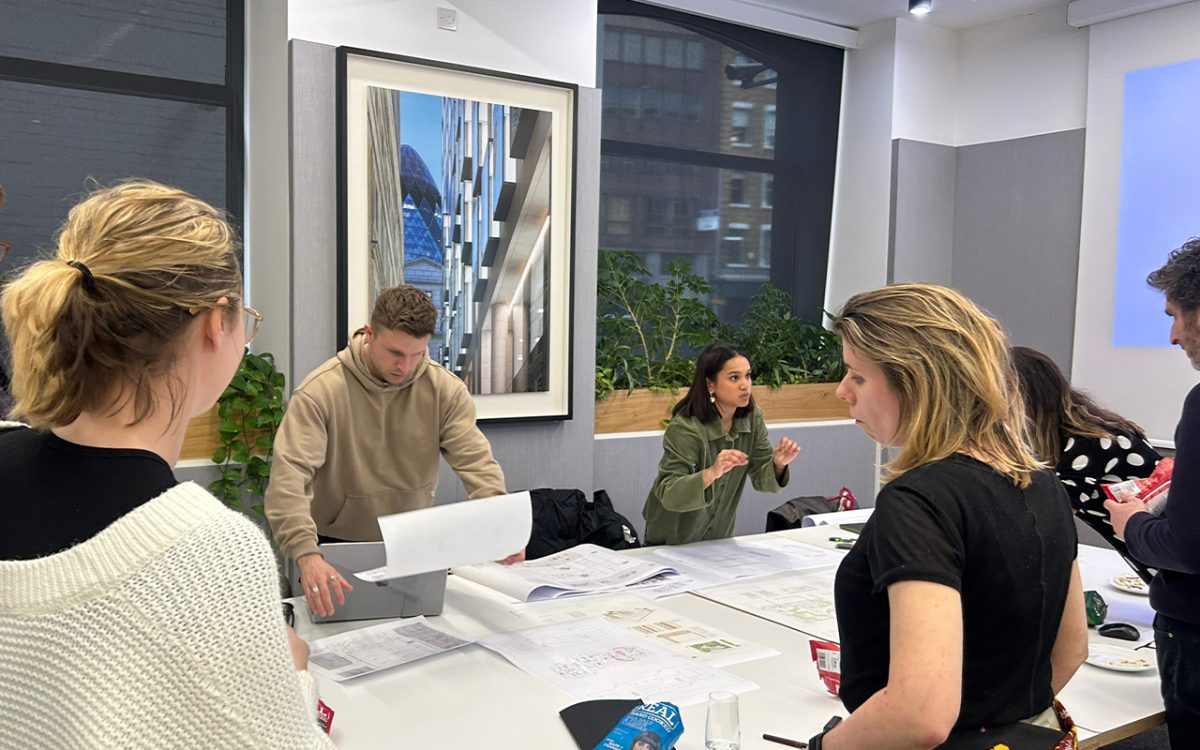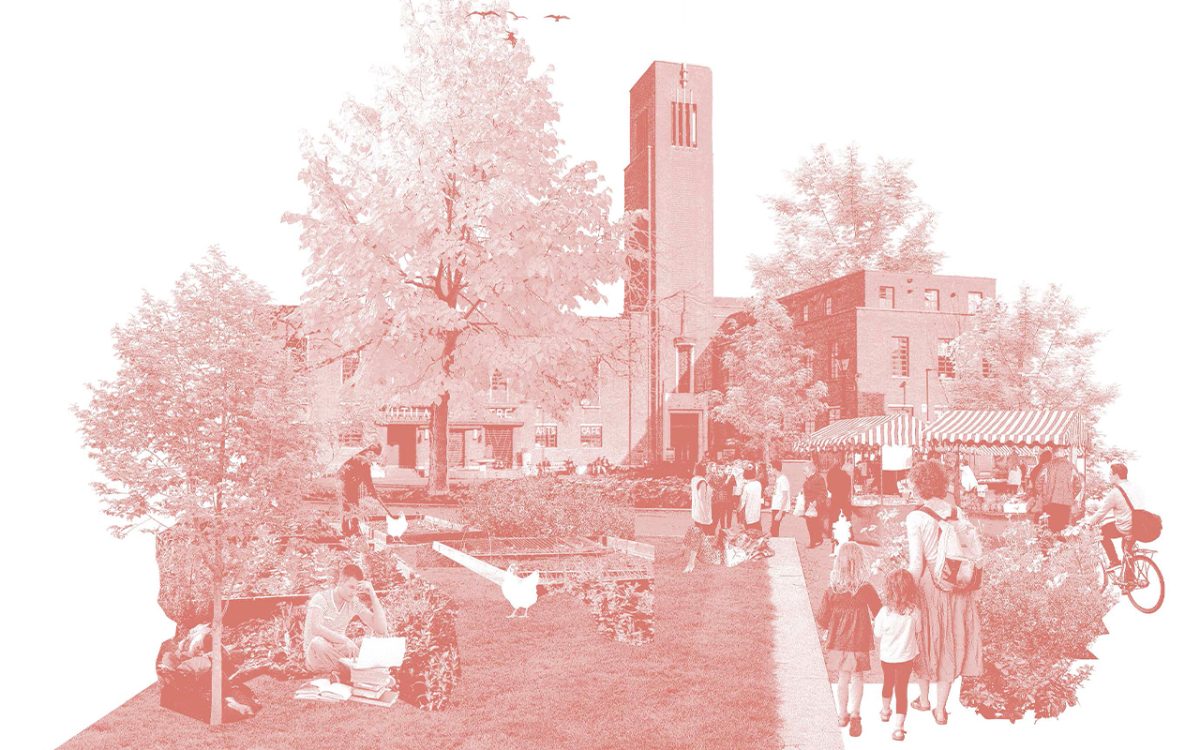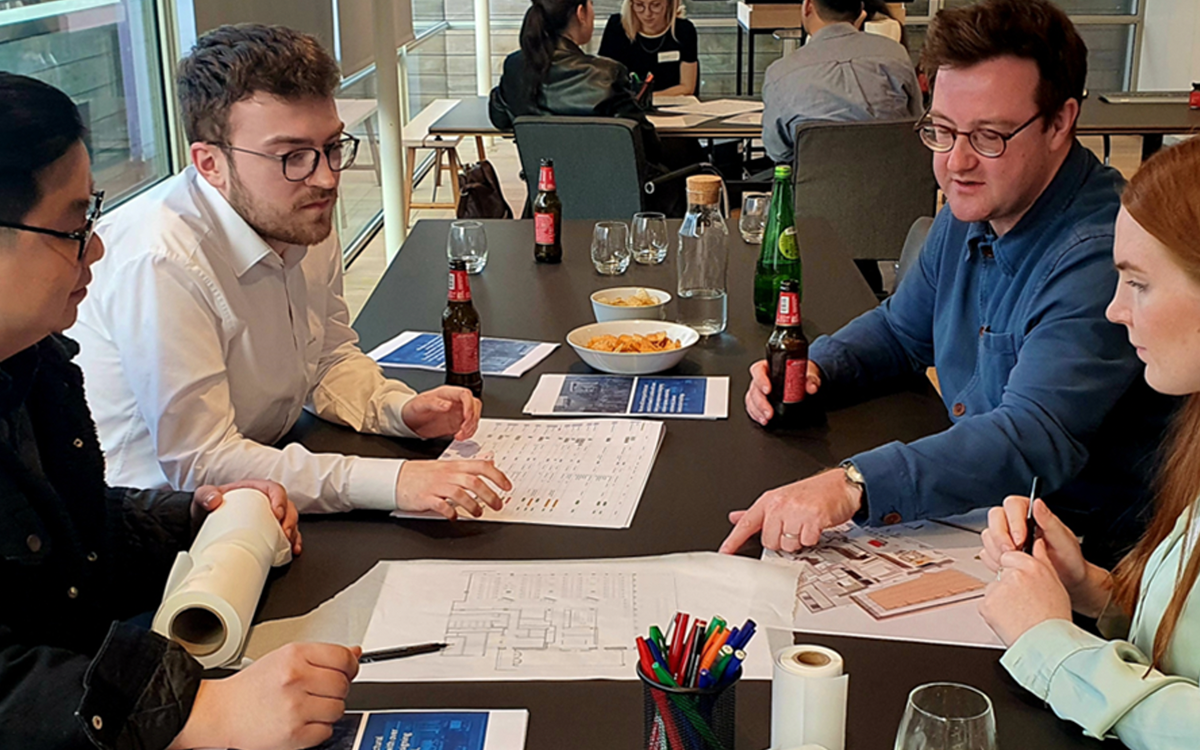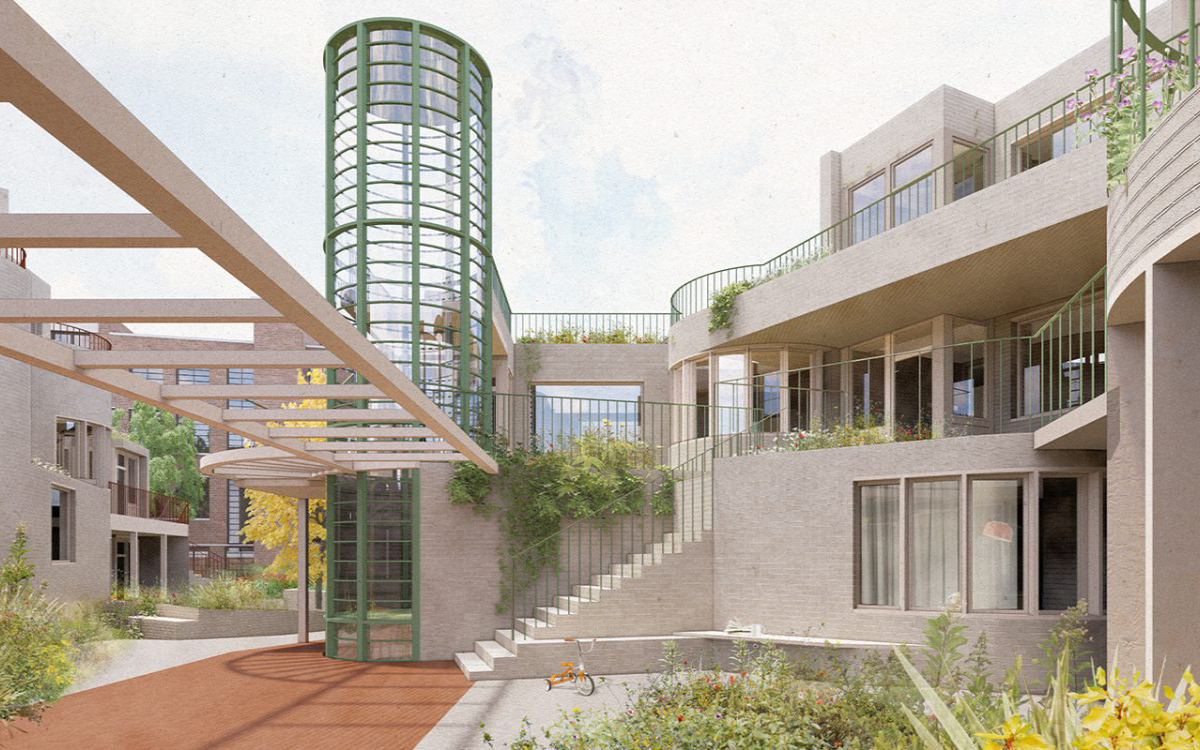Apply for our Part 2
Part 2 MArch – Year 1
In Year 1, you’ll balance a three-day-a-week Student Placement within our Practice Network with two days dedicated to school projects. Our design modules focus on urban-scale, collaborative work through Design Cities and Design Think Tank. Alongside, Critical Practice encourages you to develop a manual and manifesto shaping your professional journey. These elements culminate in Design Direction, where you start formulating your thesis project for Year 2.
Design Cities

Are you curious about how cities like London are shaped and who holds the power to change them? Do you want to learn how architects can influence urban environments through private, public, and activist-led initiatives?
Our first design module immerses you in understanding of how the urban landscape of Greater London is constructed and reconstructed. You will investigate the structures, systems, power relations, practices, processes and influences that shape the city.. In this module, you will be developing research and analytical skills and in constructing a mature reading of the city, a borough, a neighbourhood and its constituent architectures.
Three general models of development are explored:
- Private: developer and private-sector-led
- Public: local authority and state-led
- Alternative: radical and activist-led
Working with your peers, you will analyse and map these perspectives, exploring how each impacts urban, type and character. Finally, you’ll develop a unique design proposal that showcases your insights into how the city’s built environment is formed and your role in shaping it.
Design Think Tank

The City-Post Policing, 2023/24 Design Think Tank led by DSDHA
Are you excited by the idea of working directly with top architects to tackle real urban challenges? Do you want to learn how to create design solutions that influence city leaders and decision-makers?
The Design Think Tank (DTT) is one of the LSA’s most pioneering modules, fostering collaboration between students and practitioners to generate creative design propositions which address real-world challenges in London’s built environment.
In small teams, supported by faculty, practitioners and other stakeholders, you will tackle subjects and issues rooted in contemporary practice and the future of the city..You will come away not only with a deep understanding of a contemporary issue or topic in practice and city-making, but also with a set of tools to conduct architectural exploration rigorously, through the lenses of people, place, culture and technology. Your Think Tank will produce a comprehensive report setting out the research and design propositions for distribution to political leaders, administrators, business leaders and opinion formers in London and beyond.
Critical Practice: Placement

Critical Practice: Placement and Critical Practice: Theory are two inter-related modules that run alongside the design modules in year 1.
Critical Practice: Placement is the work-based component and grounds your understanding of the opportunities and constraints of the profession through undertaking an examination of how they are currently practised.
A seminar series on the forces that shape client-focused/commissioned work is supported by a writing workshop and additional dedicated series on sustainable forms of practice. Together they set a framework for you to process, prioritise and relate complicated and competing demands, from understanding cost constraints and regulation to environmental performance. You’ll develop a mature awareness of the negotiated nature of contemporary practice and the professional judgement to operate successfully and ethically within it.
Informed by your Student Placement in our Practice Network as the principal site of investigation, you will develop a Critical Practice manual that tests the relationship between process and product, ideas and outcomes. The manual will capture a comprehensive understanding of your practice experience alongside a detailed analysis of one of your practice’s projects.
Critical Practice: Theory

“En-Titled”, Sian Wells Critical Practice Manifesto, 2021
Critical Practice: Theory asks you to articulate an ideal of how you would like to practise in future – a personal exploration of your professional purpose. Two lecture series comprising faculty tutors and invited speakers relate contemporary practice to theories and ideas from within architecture and beyond it.
- The Methods & Models series examines the relationship between process and outcome of architectural production, and seeks to uncover and propose different models of practice and praxis.
- The Humanity & Planet series questions the role of the architect in wider contexts of humanity and the geosphere and will offer students tools to better understand and deal with forthcoming challenges. The series is framed around four key topics: People, Politics, Planet and Place.
You will produce a Critical Practice manifesto setting out the kind of practitioner and professional you aspire to be. In doing so, you’ll develop a deeper critical understanding of the agency of the architect in relation to others in the construction industry and creative economy, your professional and moral responsibilities, and the value that your architectural design skills can bring to the built environment and wider society.
Design Direction

“Nobody Wants to Live in a Care Home”, Ellie Harding Design Direction submission, 2022
Are you eager to develop a thesis project that reflects your personal design vision and addresses real-world urban, social, and environmental challenges? Do you want to refine your design skills across diverse typologies, exploring everything from urban analysis to community engagement?
In Design Direction, your journey moves from collaborative group work to the development of your individual thesis project. Through a series of intense and provocative design exercises you will focus your design position on a chosen topic, site and programme as well as positing a research and design method that aligns with your vision.
You’ll have the opportunity to define a personal thesis topic developed from reflections on the intersections of urban design, theory, social, environmental, economic and political frameworks and the macro and micro conditions that contextualise professional practice. You will move between urban analysis, community/user engagement, programmatic research and a strategic proposition, learning to control design techniques and methods over a range of typologies that are relevant to the thesis.
Student Placement
A core part of our unique Part 2 programme: spend three days a week on paid work placement to supplement and support your first year of studies.



